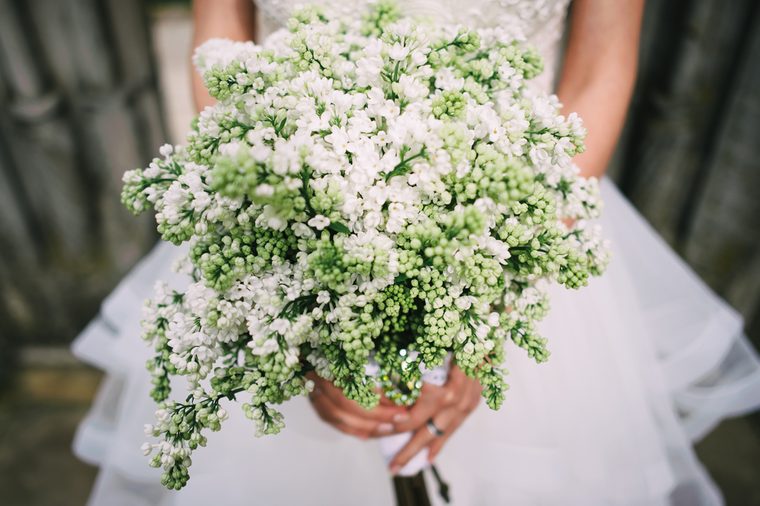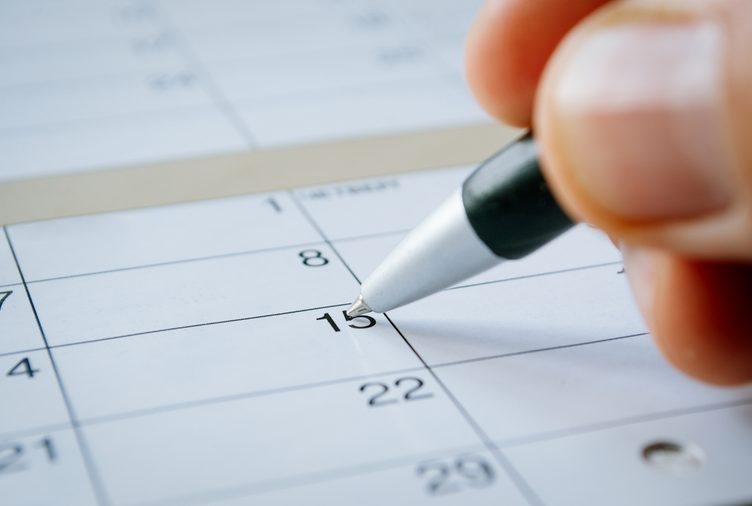
There is such a thing as good stress
The reality is that stressors cause excitement and a pleasant adrenaline rush in some people, explains licensed psychotherapist Stacy Kaiser. “For example, for people who enjoy getting up at 3 a.m. to get in line to buy that new TV, holiday shopping can be that kind of stressor. For people who enjoy that sort of thing, another good stressor can be a home renovation.” (There are 7 different types of stress.)
Contrary to popular belief, even big life events can be good stressors, says mental health counselor Margaret Bell. These include getting married, having a baby, graduating from school, and starting a new job. A lot of it depends on your own perspective. (Check out 9 surprising ways that we can benefit from stressful times.)
The good kind vs. the bad kind
Mental health professionals have clinical terms for good stress and bad stress:
- Eustress: This refers to the circumstances in which something stressful helps inspire, motivate, and enhance your performance. Clinical psychologist Patricia O’Gorman, PhD, refers to this as “challenge by choice”: You make a decision to embrace a stressful challenge.
- Distress: This is the stress that wears you out, leaves you jittery, and can wreck your health, according to a study on the impact of major life events, published in the Malaysian Journal of Medical Sciences. The researchers report that distress leads to overreaction, confusion, poor concentration, performance anxiety, and diminished performance.
Both elicit feelings of excitability and nervousness, explains therapist Marion Plessner Rodrigue, and both result in our bodies’ release of hormones such as adrenaline and cortisol, resulting in certain telltale physical sensations—including butterflies in the stomach, racing heart, and sweaty palms. Ultimately, what distinguishes one type from the other is how you feel about the experience. If you can say yes to the following questions, you’re dealing with good stress. If you can’t, it’s time to start looking at these 37 expert-recommended stress busters.

Can you handle the challenge?
The first thing you do is assess your abilities—consciously or unconsciously, explains mental health counselor Tanya Fruehauf. At work, you might think, “I’ve got the skills to do this”—this is good stress. Sometimes your inventory is instinctive—for example, if you’re pushed into the deep end of the pool before you’ve had a chance to breathe, Fruehauf says; you’ll tap your ability to swim to the surface. Good stress becomes bad when you’re handed more than you can handle or the challenge is beyond your ability.

Do you have control?
“The amount of control we believe we have over a given stressor will have a significant impact on whether we experience it as distress or not,” says clinical psychologist Diane Dixon, PhD. That’s why you make a choice to engage in a new sport or learn a new skill, she explains: You control the learning process.
When you don’t have control—a death in the family, for example, or being laid off—you’ll experience distress. But it doesn’t have to stay that way, says Jodi J. De Luca, PhD, a clinical psychologist in Colorado. “Whatever the stressor, we can always cultivate some level of control by coming up with a list of options and solutions that will assist in managing the circumstances. It’s a good first step (after identifying the stressor itself) in coming to a place where we can manage our stressors with a sense of purpose and positivity.”

Is there a reward?
When you decide to learn a new skill, the reward of getting better converts the stress into the good kind, Bell points out. Other examples: planning a wedding, becoming pregnant, going back to college—these are stressful events, but the rewards are huge. (Read about 10 fast fixes to manage stress.)

Is the stress temporary?
Anytime you put the word chronic in front of something, the definition tends to be negative—and this is especially true of stress. If the challenge is something you can power through, that’s an indication it’s good stress. “If the same stressor keeps returning, the negative effects may well accumulate,” says Dixon. Chronic stress is linked to numerous health issues, such as weight gain, high blood pressure, and heart disease.

Cultivate good stress
The good kind motivates us and helps us build self-esteem, much like resistance training helps us to build muscle, observes Fruehauf. “In fact, cultivating the good kind is essential for us to thrive.” And there are many ways to cultivate it. “You can cultivate it by taking on increasingly difficult demands at work,” Rodrigue suggests. Traveling also cultivates the good kind, points out therapist Kimberly Hershenson. “So can starting an exciting new job or embarking on a new relationship,” Hershenson says.

When stress tends to be bad
Personal tragedy, big financial losses, illness, being forced to move, getting fired—any unplanned, life-changing event is going to come with plenty of distress, says Kaiser. This includes the Covid-19 pandemic as well as natural disasters also play a role; O’Gorman points to the California wildfires.
“Stressors that trigger recollections of prior distress will be more likely to engender distress,” O’Gorman says. “These could include recollections of combat in a veteran, or abuse experienced as a child, or infidelity by a partner.” (Try these 8 mini meditations that banish stress.)

Managing bad stress
When things seem insurmountably awful, Dixon says, that’s when you have to drill down to the basics of what makes up good health. She refers to these as “the big five”:
- Good sleep
- Good nutrition
- Good physical exercise
- Good social support
- Belief in something bigger than yourself
Other experts refer to them collectively as “self-care.”
“People often stop taking care of themselves both emotionally and physically when they are faced with intense stressors,” Kaiser points out. “But a lack of self-care can make a bad situation even worse.” Don’t miss the signs you are headed for a nervous breakdown.
“I tell my clients that it’s vital, during periods of grief, trauma or high distress, to hydrate, eat simple meals (do not skip meals altogether), protect sleep (use herbal supplements or prescriptions to avoid sleep deprivation), and release any and all unnecessary obligations,” says licensed psychotherapist Amy Axtell. “Other things that help are acupuncture, yoga, meditation, therapy, walking, and other movements. Try to drink less because alcohol is a depressant and can further exacerbate distress.” (Check out 10 simple ways to get started on being nicer to yourself.)

